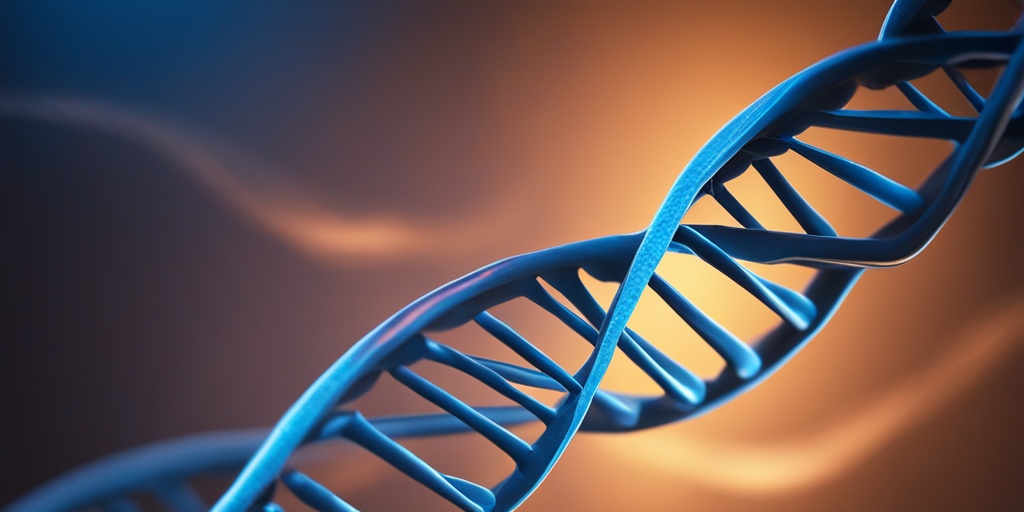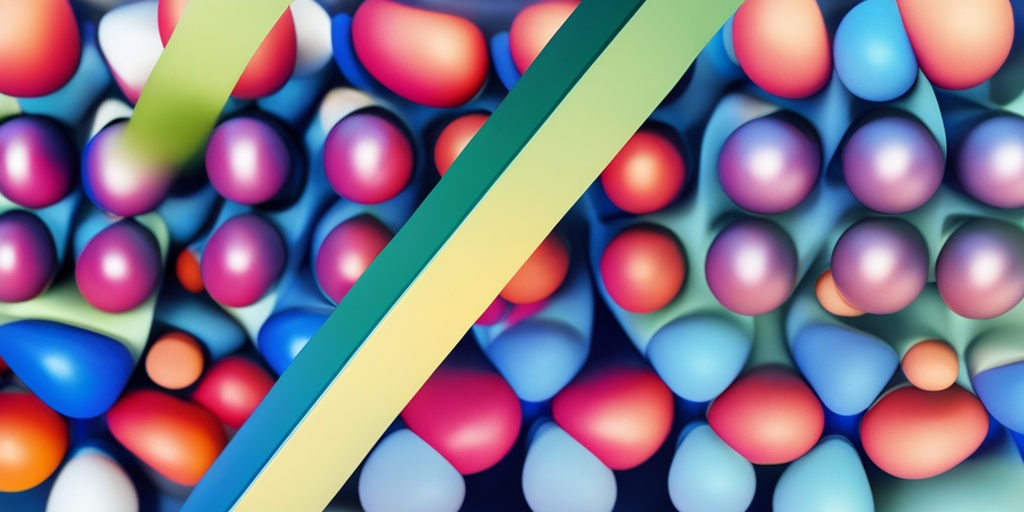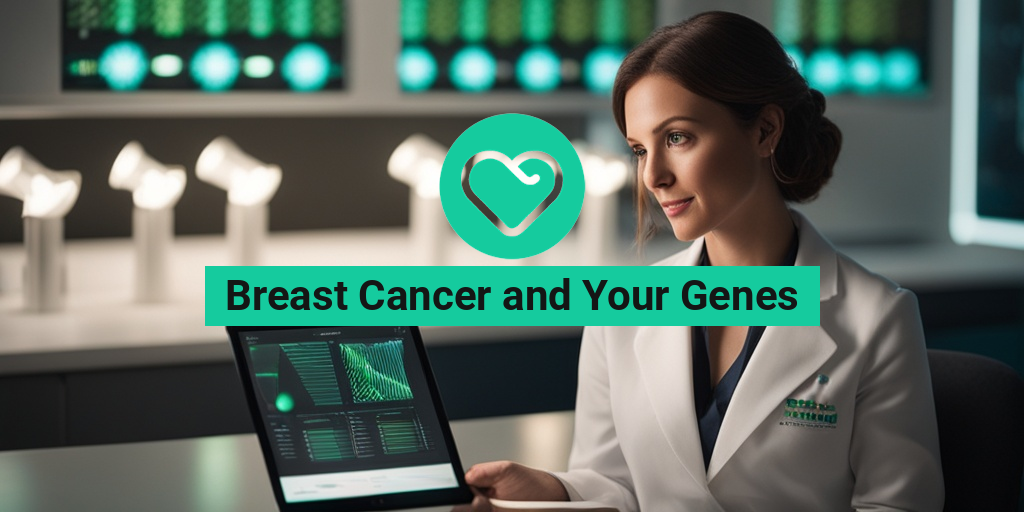What Is the Link Between Breast Cancer and Genetics?
Breast cancer is a complex disease that affects millions of people worldwide. While there are many risk factors associated with breast cancer, one crucial aspect that has gained significant attention in recent years is the link between breast cancer and genetics. But what exactly is this link, and how do our genes play a role in our risk of developing breast cancer?
Understanding the Role of Genes in Breast Cancer
Our genes are the building blocks of our bodies, and they contain the instructions for our growth, development, and function. In the context of breast cancer, certain genes can increase our risk of developing the disease. These genes are responsible for producing proteins that help regulate cell growth and division. When these genes are mutated or altered, it can lead to uncontrolled cell growth, which can eventually develop into cancer.
Research has identified several genes that are associated with an increased risk of breast cancer. The most well-known of these genes are BRCA1 and BRCA2, which are tumor suppressor genes. These genes help repair damaged DNA and prevent cells from becoming cancerous. However, when they are mutated, they can increase the risk of breast cancer.
How Do Genetic Mutations Increase Breast Cancer Risk?
Genetic mutations can increase breast cancer risk in several ways:
- Inherited mutations: If you inherit a mutated gene from your parents, you may be more likely to develop breast cancer. This is because the mutated gene is present in every cell of your body, including your breast cells.
- Acquired mutations: Genetic mutations can also occur spontaneously, without being inherited. These mutations can occur due to environmental factors, such as radiation exposure or errors during DNA replication.
- Tumor suppressor genes: As mentioned earlier, BRCA1 and BRCA2 are tumor suppressor genes. When these genes are mutated, they can’t perform their usual function of repairing damaged DNA, leading to an increased risk of breast cancer.
Genetic Mutations and Breast Cancer Risk
While genetic mutations can increase breast cancer risk, it’s essential to understand that not everyone with a genetic mutation will develop breast cancer. Similarly, not everyone with breast cancer has a genetic mutation. However, if you have a family history of breast cancer or have been diagnosed with a genetic mutation, it’s crucial to take proactive steps to reduce your risk.
What Can You Do to Reduce Your Risk?
If you’re concerned about your risk of breast cancer due to genetic mutations, here are some steps you can take:
- Get tested: If you have a family history of breast cancer, consider getting tested for genetic mutations. This can help identify your risk and guide your prevention and screening strategies.
- Screening and early detection: Regular breast cancer screening, such as mammograms and clinical breast exams, can help detect breast cancer early, when it’s more treatable.
- Risk-reducing strategies: Consider risk-reducing strategies, such as prophylactic mastectomy or chemoprevention, if you’re at high risk of developing breast cancer.
- Healthy lifestyle choices: Maintaining a healthy weight, exercising regularly, and limiting alcohol consumption can also help reduce your risk of breast cancer.
Remember, knowledge is power when it comes to breast cancer and genetics. By understanding your risk and taking proactive steps, you can reduce your risk of developing breast cancer. If you have concerns about your risk or have questions about genetic testing, consult with your healthcare provider or a genetic counselor. 💡
For more information on breast cancer and genetics, visit Yesil Health AI, a valuable resource for evidence-based health answers. 🌟

BRCA1 and BRCA2: The Breast Cancer Genes
When it comes to breast cancer and your genes, two names often come up: BRCA1 and BRCA2. These genes are tumor suppressors, which means they help prevent cells from growing and dividing too rapidly or uncontrollably. In other words, they help keep your cells in check and prevent them from becoming cancerous.
What do BRCA1 and BRCA2 do?
BRCA1 and BRCA2 genes are responsible for repairing damaged DNA and maintaining the stability of the genetic material in your cells. They do this by producing proteins that help fix errors in DNA replication and prevent mutations from occurring. When these genes are functioning properly, they help prevent cells from becoming cancerous.
What happens when BRCA1 and BRCA2 genes are mutated?
When BRCA1 and BRCA2 genes are mutated, they can’t perform their job properly. This means that cells are more likely to become cancerous, as they can’t repair DNA damage or prevent mutations. Women with a mutated BRCA1 or BRCA2 gene have a higher risk of developing breast and ovarian cancer. In fact, according to the National Cancer Institute, women with a BRCA1 or BRCA2 mutation have a 45-65% chance of developing breast cancer by age 70.
It’s worth noting that having a BRCA1 or BRCA2 mutation doesn’t guarantee you’ll develop breast cancer. However, it does increase your risk, and it’s essential to take steps to manage that risk.
Other Genetic Mutations That Increase Breast Cancer Risk
While BRCA1 and BRCA2 are the most well-known genetic mutations associated with breast cancer, they’re not the only ones. There are several other genetic mutations that can increase your risk of developing breast cancer.
TP53
The TP53 gene is another tumor suppressor that helps prevent cells from becoming cancerous. Mutations in the TP53 gene have been linked to an increased risk of breast cancer, as well as other types of cancer, such as ovarian and colon cancer.
PTEN
The PTEN gene helps regulate cell growth and division. Mutations in the PTEN gene have been linked to an increased risk of breast cancer, as well as other types of cancer, such as endometrial and thyroid cancer.
CHEK2
The CHEK2 gene helps regulate the cell cycle and prevent cells from becoming cancerous. Mutations in the CHEK2 gene have been linked to an increased risk of breast cancer, as well as other types of cancer, such as colon and prostate cancer.
It’s essential to remember that having a genetic mutation doesn’t guarantee you’ll develop breast cancer. However, it does increase your risk, and it’s crucial to take steps to manage that risk. If you’re concerned about your genetic risk of breast cancer, talk to your doctor or a genetic counselor about getting tested. 💡
Remember, knowledge is power, and understanding your genetic risk can help you take control of your health. 💪

How Do Genetic Mutations Affect Breast Cancer Development?
When it comes to breast cancer, genetics play a significant role in determining an individual’s risk of developing the disease. Genetic mutations, particularly those related to the BRCA1 and BRCA2 genes, can significantly increase a person’s likelihood of developing breast cancer. But how do these genetic mutations affect breast cancer development?
The Role of BRCA1 and BRCA2 Genes
The BRCA1 and BRCA2 genes are tumor suppressor genes, which means they help regulate cell growth and prevent tumors from forming. When these genes are functioning normally, they produce proteins that repair damaged DNA and prevent cells from becoming cancerous. However, when there is a mutation in one or both of these genes, the proteins produced are faulty or non-functional, leading to an increased risk of breast cancer.
BRCA1 and BRCA2 mutations account for around 5-10% of all breast cancer cases, and they are more common in certain ethnic groups, such as Ashkenazi Jews. These mutations can be inherited from either parent and can affect both men and women, although they are more common in women.
How Genetic Mutations Increase Breast Cancer Risk
When a genetic mutation occurs in the BRCA1 or BRCA2 gene, it can lead to a range of problems that increase the risk of breast cancer. These include:
- Uncontrolled cell growth: Without functional BRCA1 or BRCA2 proteins, cells can grow and divide uncontrollably, leading to the formation of tumors.
- DNA damage: Faulty BRCA1 or BRCA2 proteins can’t repair damaged DNA, leading to genetic mutations that can cause cancer.
- Hormone regulation: BRCA1 and BRCA2 genes also play a role in regulating hormone levels, including estrogen. Imbalances in hormone levels can increase the risk of breast cancer.
These genetic mutations can also increase the risk of other cancers, including ovarian, prostate, and pancreatic cancer.
Genetic Testing for Breast Cancer Risk
Genetic testing can help identify individuals who are at high risk of developing breast cancer due to genetic mutations. There are several types of genetic tests available, including:
BRCA1 and BRCA2 Testing
This type of testing looks for mutations in the BRCA1 and BRCA2 genes. It’s usually recommended for individuals who have a strong family history of breast or ovarian cancer, or those who have already been diagnosed with breast cancer.
Who should consider BRCA1 and BRCA2 testing?
- Individuals with a family history of breast or ovarian cancer
- Those who have already been diagnosed with breast cancer
- Women with a history of ovarian cancer
- Men with a family history of breast or ovarian cancer
Genetic testing can provide valuable information about an individual’s risk of developing breast cancer. If a genetic mutation is identified, it can help guide screening and prevention strategies to reduce the risk of breast cancer. 💡
Stay tuned to learn more about breast cancer and your genes! 👉

Breast Cancer Screening and Prevention for High-Risk Women
When it comes to breast cancer, early detection and prevention are key. For women who are at high risk due to their genetic makeup, it’s essential to take proactive steps to reduce their chances of developing the disease. In this article, we’ll explore the importance of breast cancer screening and prevention for high-risk women, and what they can do to take control of their health.
Understanding Your Risk Factors
Before we dive into screening and prevention strategies, it’s crucial to understand what puts a woman at high risk for breast cancer. Some of the most significant risk factors include:
- Family history: Having a first-degree relative (mother, sister, or daughter) with breast cancer, especially if they were diagnosed before the age of 50.
- Genetic mutations: Carrying genes like BRCA1 or BRCA2, which increase the risk of breast and ovarian cancer.
- Previous breast cancer: Having had breast cancer in the past increases the risk of developing it again.
- Dense breasts: Having dense breast tissue, which can make it harder to detect tumors on a mammogram.
Screening Options for High-Risk Women
For high-risk women, regular screening is vital for early detection and prevention. The American Cancer Society recommends the following screening options:
- Annual mammograms: Starting at age 30, high-risk women should have an annual mammogram to detect any abnormalities in the breast tissue.
- Annual MRI: In addition to mammograms, high-risk women may also benefit from an annual MRI (magnetic resonance imaging) to detect any tumors that may not be visible on a mammogram.
- Clinical breast exams: Regular clinical breast exams by a healthcare provider can help detect any changes in the breasts.
Prevention Strategies for High-Risk Women
In addition to regular screening, there are several prevention strategies that high-risk women can take to reduce their chances of developing breast cancer:
- Genetic counseling: Meeting with a genetic counselor can help high-risk women understand their genetic makeup and develop a personalized prevention plan.
- Chemoprevention: Certain medications, such as tamoxifen, can help reduce the risk of breast cancer in high-risk women.
- Risk-reducing surgery: In some cases, high-risk women may choose to undergo risk-reducing surgery, such as a mastectomy or oophorectomy, to remove the breasts or ovaries and reduce their risk of developing breast and ovarian cancer.
Managing Breast Cancer Risk with Genetic Counseling
Genetic counseling is a crucial step in managing breast cancer risk for high-risk women. A genetic counselor can help women understand their genetic makeup and develop a personalized plan to reduce their risk of developing breast cancer.
What to Expect from Genetic Counseling
During a genetic counseling session, a trained counselor will:
- Review your family history: The counselor will ask about your family history of breast and ovarian cancer to assess your risk.
- Discuss genetic testing: The counselor will discuss the option of genetic testing, such as BRCA1 and BRCA2 testing, to determine if you carry any genetic mutations that increase your risk of breast cancer.
- Develop a personalized plan: Based on your risk factors and genetic test results, the counselor will develop a personalized plan to reduce your risk of developing breast cancer.
By understanding your risk factors and taking proactive steps to reduce your risk, you can take control of your health and reduce your chances of developing breast cancer. Remember, knowledge is power, and being informed is the first step in managing your breast cancer risk. 💪

Breast Cancer and Your Genes: Frequently Asked Questions
Understanding the connection between breast cancer and your genes can be overwhelming. Here are some frequently asked questions to help you navigate this complex topic:
What genes increase the risk of breast cancer?
The most well-known genes associated with breast cancer are BRCA1 and BRCA2. These genes normally help prevent cancer by repairing damaged DNA. However, mutations in these genes can increase the risk of breast cancer. Other genes, such as TP53, PTEN, and ATM, can also contribute to the development of breast cancer.
How do I know if I have a genetic mutation that increases my risk of breast cancer?
If you have a family history of breast cancer, especially at a young age, or if you have a personal history of breast cancer, you may be eligible for genetic testing. A genetic counselor or healthcare provider can help determine if genetic testing is right for you.
What is the BRCA gene, and how does it affect breast cancer risk?
The BRCA gene is a tumor suppressor gene that helps repair damaged DNA. Mutations in the BRCA gene can increase the risk of breast and ovarian cancer. Women with a BRCA mutation have a higher risk of developing breast cancer, especially at a younger age.
Can I inherit breast cancer from my father’s side of the family?
Yes, breast cancer can be inherited from either parent. While the risk is higher if your mother has a BRCA mutation, you can still inherit a mutation from your father. If you have a family history of breast cancer on your father’s side, it’s essential to discuss your risk with a healthcare provider or genetic counselor.
What are the chances of getting breast cancer if I have a family history?
If you have a first-degree relative (mother, sister, or daughter) with breast cancer, your risk of developing breast cancer increases. The exact risk depends on the number of relatives affected, their age at diagnosis, and other factors. A genetic counselor or healthcare provider can help you understand your individual risk.
Can genetic testing help prevent breast cancer?
Genetic testing can identify individuals at high risk of developing breast cancer. If you test positive for a genetic mutation, you can take steps to reduce your risk, such as:
- Enhanced screening, such as annual mammograms and breast MRIs
- Risk-reducing medications, such as tamoxifen
- Surgical options, such as mastectomy or oophorectomy
Early detection and prevention strategies can improve outcomes and save lives.
Where can I get more information and support?
There are many resources available to help you understand breast cancer and your genes:
- National Breast Cancer Foundation (www.nationalbreastcancer.org)
- American Cancer Society (www.cancer.org)
- Genetic Alliance (www.geneticalliance.org)
Remember, knowledge is power. Educate yourself, and don’t hesitate to reach out to a healthcare provider or genetic counselor for personalized guidance.
💕 Stay informed, stay empowered!




